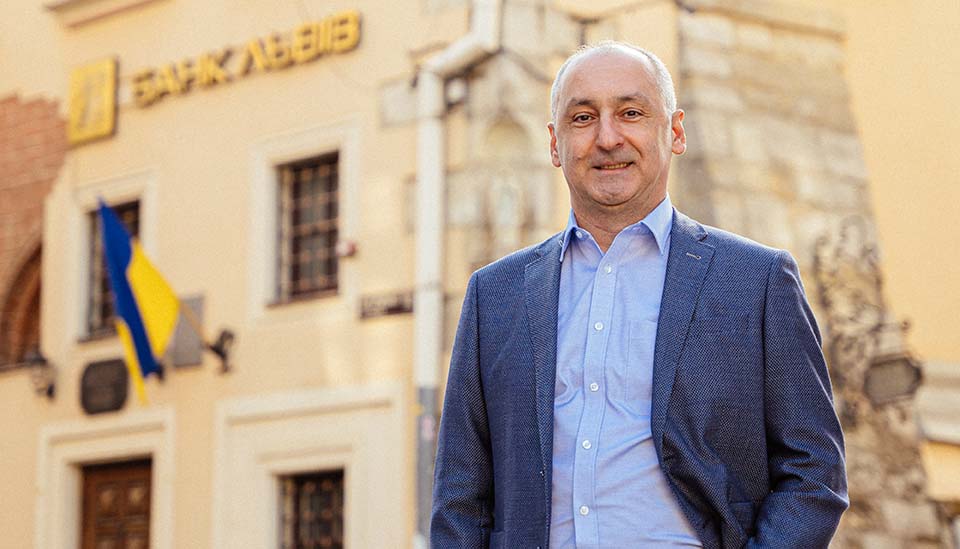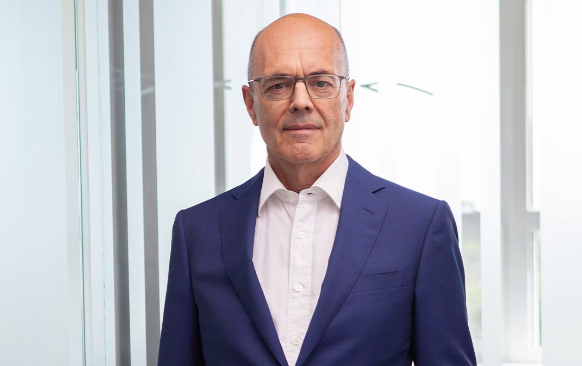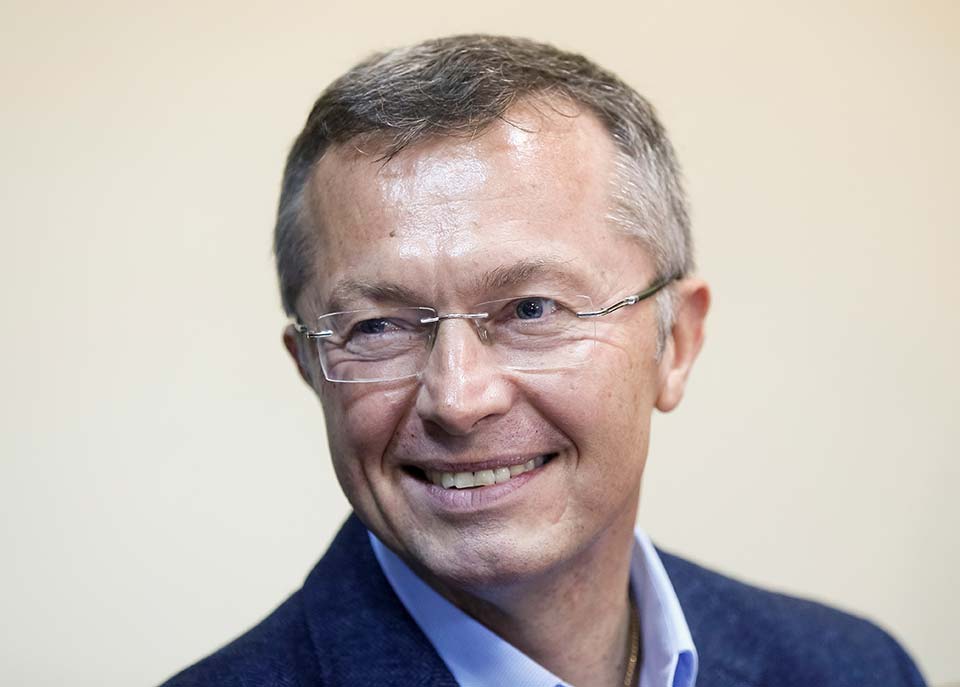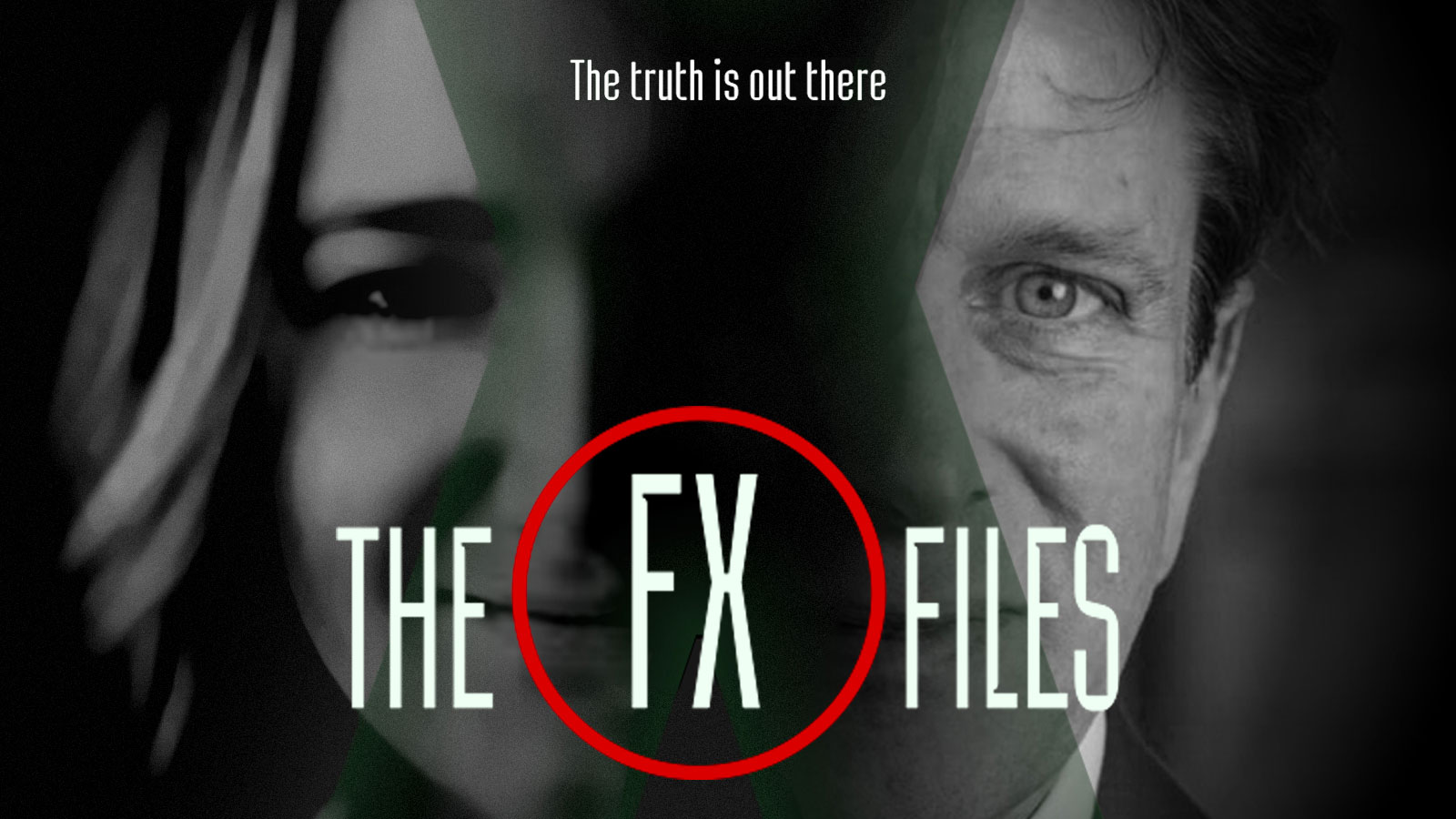More on banking in Ukraine
Margeir Pétursson poses Euromoney a tantalizing trivia question.
“Who is the most famous person to come from Lviv?” the Icelandic banker asks in an email following our lunch meeting at Hotel Atlas in the old town of the Ukrainian city. Lviv has been Pétursson’s home for more than 15 years after he bought western Ukraine’s biggest bank, Bank Lviv.
As for famous Leopolitans, as the city’s residents are known, there is quite a list to choose from. With its Ruthenian, Polish, Jewish, Habsburg, Soviet and now independent Ukrainian pedigree, Lviv sees itself as Ukraine’s cultural capital, one with global influence. Centuries of philosophers, artists, writers, politicians and intellectuals have called Lviv their home.
Jump to:
Perhaps Pétursson is suggesting himself? He is pretty famous locally as Lviv’s leading banker. Unusually, he is a foreigner in an oligarch-dense nation that was difficult to operate in long before Russia invaded it. Pétursson is also renowned in international banking circles for owning the only Icelandic bank – MP Bank – that didn’t fail during that country’s 2008 banking crisis.
Pétursson is a chess celebrity in Iceland, and the game got him his first break in banking. In 1984, he played in a Reykjavik tournament that was sponsored by an Icelandic bank. One of the sponsor’s executives was a chess aficionado and warmed to Pétursson.
“‘Come and work for us, we need new blood,’ he told me. And I did,” he recalls.
Then 24 years old, Pétursson was hired to run the bank’s loan recovery unit, and he turned it around.
“The banking system in ’84 in Iceland was a total mess,” he says. “It was all government banks, and they had lot of NPLs [non-performing loans]. I totally reformed it, everything got automated, but I just got tired of it. I came home one evening from work and realized that nobody had said a true word to me all day.
“That was enough. I just said: ‘OK, let’s take a break and play some chess.’”
The National Bank of Ukraine has done a great job; they have always made sure that the banks had enough cash. And I have been amazed at how calm people have been
Margeir Pétursson, Bank Lviv
Pétursson turned professional and through the 1980s and 1990s won many international chess tournaments.
“I made a very reasonable living.”
Chess finessed his banking skills and risk assessment, he says.
“Chess helps you in decision making, you have to have a thinking discipline in chess, to focus on the decisions at hand… are you going to attack or are you going to just consolidate? A lot of bankers like chess.
“When I was a professional player, I got to know a lot of people in the securities and financial industries, the tournament sponsors,” he says.
Inevitably, Pétursson was lured back to formal banking in 1999 when Iceland’s financial industry was preparing for deregulation. He launched his own investment firm that eventually grew into a fully licensed bank, MP Bank, a bond specialist.
Iceland was booming, but he started getting concerned about its banks during 2004 and 2005.
“I would just say to clients that we did not have any bank stocks,” he recalls. “We missed out on a lot of increase, but I never believed it, there was too much froth. I wasn’t a crazy risk-taker like these other guys.”
He was criticized for being too conservative.
“Everybody said I was a loner. Clients didn’t want to speak to me,” he says. “It was clear that the banking system would collapse from years earlier.”
He was right. At one point, Iceland’s biggest banks notionally held assets equal to 12 times the country’s GDP, rendering its central bank incapable of effective regulation and stabilization. Iceland suffered history’s most profound national banking collapse. MP Bank lost about 20% of its capital, but unlike all its compatriot banks, it survived.
“That was a big hit,” he recalls. “It was not a matter of life and death for us, but it was extremely bad. We were actually the only bank which returned funds to foreign creditors. They were just so surprised when they got the payment. We just diversified out of Iceland. That’s one reason I’m here.”
An eye-opener
Pétursson first visited Lviv in 2004, inspecting a different prospect. He was intrigued to hear that a small bank being fought over by local oligarchs, Bank Lviv, might be for sale.
“It was a thing then that everybody was buying a bank in Ukraine,” he says. “They were buying up to five times book valuation – totally crazy. We thought better to just develop it ourselves and see what happens. It was very small and not very well run.”
He completed the Bank Lviv purchase in 2006 and commuted between Reykjavik and Lviv until 2011 when he exited his Icelandic holdings, which made him one of Iceland’s richest people.
But operating in Ukraine was an eye-opener: with revolutions in 2004 and 2014, the economic collapse of 2008, Russia’s seizure of Crimea in 2014, a Russian-backed separatist war in the Donbass and, since February, a Russian invasion.
The bank is in a reasonable shape, the clients haven’t been hurt by the war really
Ashot Abrahamyan, Bank Lviv
“It has been a very difficult environment,” he says. “It was only after I’d stayed here and been in business for two or three years that I understood corruption. We just refused to do business with oligarchs, we are too small. We have worked with some local groups, but they are not like the eastern Ukraine oligarchs.”
Pétursson says a key element of Bank Lviv’s stability is its location.
“Lviv was nowhere in 2005. People in Kyiv asked me: ‘What are you doing in this hole, this backwater?’ But I just took the decision in 2006 that we would not cross the Dnieper,” he says, referring to the Ukrainian river that bisects the Russian-facing east and the European-leaning west. “I don’t think it’s so much being extra smart. I think it’s just that we have good management and we manage the bank prudently.”
Today Lviv is anything but the backwater Pétursson found in 2005. In February 2022, as Russian tank columns devastated the capital Kyiv’s northern fringe, Lviv became Ukraine’s de facto capital when state institutions and foreign embassies relocated from Kyiv. Business followed and stayed.
Kyiv has since stabilized, the Russians have been pushed back and Lviv has become a boomtown; the influx of refugees from the east and the materiel arriving from the west have driven rents up fourfold.
“People are looking for investments here, absolutely,” Pétursson says. “There are opportunities in this situation.”

The management of the bank rests with its Armenian chief executive, Ashot Abrahamyan. He was seconded as part of a team from the German management consultant, Inspired Developments, which provides executive talent to emerging banks, particularly those in the former Soviet Union.
After five years in Lviv, Abrahamyan has fashioned Bank Lviv into a small and medium-sized enterprise-oriented service bank, with a lesser focus on microfinance and traditional retail.
Around 90% of bank assets are business loans, he says, adding that the Covid-19 pandemic was good preparation for the war because it led to improvements in the bank’s fintech and in its understanding of client risk.
“First we had to give them support because of Covid, so we are quite used to it.”
When the economy took a dive after the February invasion, Abrahamyan restructured 63% of the bank’s loan portfolio.
“We just offered it, and many took it because of uncertainty,” he says.
During May and June, as things settled, Abrahamyan touted another restructuring to clients.
“Only 7% of our total loan portfolio took the second one. Everybody else came to normal payment schedules. The bank is in a reasonable shape, the clients haven’t been hurt by the war really.”
He calculates post-restructuring NPLs at around 2%.
The invasion
Abrahamyan says the bank made about Hrn70 million ($1.9 million) in profit last year. He is in charge of around 400 staff in 21 branches spread across western Ukraine reaching north to the border with Belarus, with a branch in Kyiv.
Those northern branches proved briefly problematic for Abrahamyan in the first days of the February invasion as Russian troops swept south into Ukraine from positions on the Belarus border.
“We asked everybody if there would be a need to escape, so we prepared an evacuation plan for about 220 people. The bank has safe houses in Lviv to house displaced staff as need be.”
So, did the man who predicted the Icelandic crisis also foresee Russia’s invasion?
“I didn’t believe they would attack,” Pétursson admits. “I thought it was a bluff to intimidate Ukraine to demand some concessions. I did not believe that anybody would make such a miscalculation. I think that they thought that people would lay flowers on the tanks.”
A game of strategy
How does a 62-year-old Icelander get to own a bank in war-torn Ukraine? In a word, chess. Margeir Pétursson is a household name in Iceland, one of that country’s 10 living chess Grandmasters. He is renowned in the arcane arena of elite international chess as a forensic defensive player, patiently waging long battles before carefully choosing the moment to attack.
“I wanted to be a soccer player,” he says. “Then I wanted to be a chess player. And then I became a lawyer; and a banker.” He pauses as if to ponder one of the quirkier life journeys. “Interesting.”
For six weeks in July and August 1972, the world was captivated by the ‘Match of The Century’, a 21-game epic to determine the world champion. The defending champion was a Russian, Boris Spassky, challenged by Bobby Fischer from Chicago.
The contest became an international media circus heavy with Cold War symbolism. The bleak, unsmiling Spassky was defending the Soviet domination of chess against the young but brilliant Fischer, who was urged on by the US secretary of state Henry Kissinger. The rancorous contest, which Fischer eventually won, was hosted in neutral Reykjavik. And it inspired 12-year-old Pétursson.
“Everybody in Iceland was playing chess,” he recalls. “If you did not play chess, you were an idiot.”
Pétursson took to the game enthusiastically. By the time he was 18, the governing body of chess, FIDE, had made him an International Master and by 26, he was a Grandmaster, the highest level in world chess. Pétursson also played Spassky and beat him.
The USSR was then the game’s epicentre, thanks to the influential Soviet Chess School. Lenin had been a keen player and in Moscow’s ideological struggle for supremacy with the West, the communist leadership believed the intellectual lustre attached to top-flight chess would bring the Soviet system prestige.
As Pétursson, who learnt Russian, explains, if you were a Westerner playing top-flight chess in those days, you inevitably spent much time in the Soviet Union, including the nations such as Ukraine that emerged and gained independence after the USSR’s breakup in 1991.
At around 6am on February 24, Pétursson first heard that Russian troops had entered Ukraine and that many Ukrainian cities were being bombed. As he drove to the bank’s head office in Lviv’s old town, he saw longer lines than normal at bank branches and ATMs, including his own.
“It wasn’t a bank run,” he says, “it was very orderly and civilized, just people going about their business but a bit more than normal. Normally there are no lines at ATMs.”
“Then I started to get all these phone calls [from clients]. People wanted me to get out, and I said: ‘Come on, everything is quiet, Lviv is very far away.’ I was convinced that the Russians would never make it to Lviv.
“We were waiting for instructions from the central bank. They said: ‘Don’t open and we’ll just coordinate everything.’ The National Bank of Ukraine has done a great job; they have always made sure that the banks had enough cash. And I have been amazed at how calm people have been.”
Pétursson has stayed in the city since February, apart from a week piloting a convoy of Icelanders and Ukrainians to Hungary in late February and an August trip to Chennai to lead the Icelandic squad at the Chess Olympiad in India, which was relocated there from Russia in protest at the invasion.
“My main worry after the invasion was that they would drop a tactical nuclear bomb here,” he says.
Those fears have since dissipated, but Pétursson is not the only prominent local to harbour such fears. The city’s non-Russian past has made many of its population uneasy that they may be specifically targeted by Russian missiles. An important railway and logistics centre, the city is a key access point for Western goods and materiel flowing into Ukraine through Poland, just 70 kilometres to the west.
Lviv’s strategic importance was underlined on March 13 when Russia bombed the Yavroviv military base just 20km from the Polish border, where Western defence personnel trained and supplied the Ukrainian military. Russia said 180 “foreign mercenaries” were killed in the attack, while Ukraine said 61 people lost their lives.
Pavlo Sheremeta, Ukraine’s former minister for economic development and an independent director of Raiffeisen Bank’s Ukraine offshoot, was born and lives in Lviv. He argues that it is “now not unthinkable” that Russia could specifically target Lviv because it is seen as a safe haven and the closest large Ukrainian city to Nato’s frontier.
As Ukraine’s main Europe-leaning city, he argues that Lviv is not imprinted in the Russian nationalist narrative underpinning president Vladimir Putin’s quest to abolish Ukraine.
Pétursson says: “The West should try to help Ukraine to have macroeconomic stability so that people will not be afraid of keeping their savings in hryvnia. I think central banks in the EU and UK should do swaps with the National Bank of Ukraine. They can stabilize Ukraine this way.
“These lines are never drawn, even though they are there, it’s just stability; the amount of these swaps is peanuts for them because the Ukrainian economy is so amazingly small. There is a lot of reform to be done, the Americans, they should demand it. It’s their money and they should just sit in Kyiv in the National Bank and basically approve all payments.”
Pétursson bought Bank Lviv outright in 2006 but has since sold down his stake. In 2018, Swiss private equity group responsAbility took a 48% stake (the UK’s M&G Group bought responsAbility in 2022, a deal brokered by Abrahamyan’s Inspired Developments when it took over bank management). In January this year, a month before the Russian invasion, the Helsinki-based Nordic Environment Finance Corporation, a green-oriented fund owned jointly by the governments of Norway, Sweden, Iceland, Finland and Denmark, acquired 14% of Bank Lviv. Pétursson’s stake now stands at around 38%.
“I was looking to sell part of my holding just because of my age. I just wanted a kind of a pension thing. I want to keep a stake in the bank, a significant stake.”
He thinks of himself as semi-retired, after handing over management to Abrahamyan.
“I’m playing more chess now,” he says.
“I actually do believe in the management and the business plan. Now it’s a great opportunity because a lot of investment is going to come in after the war, but people have to understand that this is not only a war on the front, it’s also economic war. The damage to the economy is enormous. It’s totally unacceptable in the 21st century that you can just grab land. For Ukraine, it’s not acceptable to give up territory.
“I just hope it will finish.”
Postscript: Pétursson confessed that the famous Leopolitan he had in mind was not himself but the Habsburg-era writer and aristocrat Leopold von Sacher-Masoch – a great-great uncle of the singer Marianne Faithfull – whose most famous work was the 1870 novella ‘Venus in Furs’. Mindful of the extended trivia exchange that seemed to delight Pétursson, or perhaps his years as a banker in war-torn Ukraine, Baron Sacher-Masoch is best known as inspiring the term ‘masochism’.








